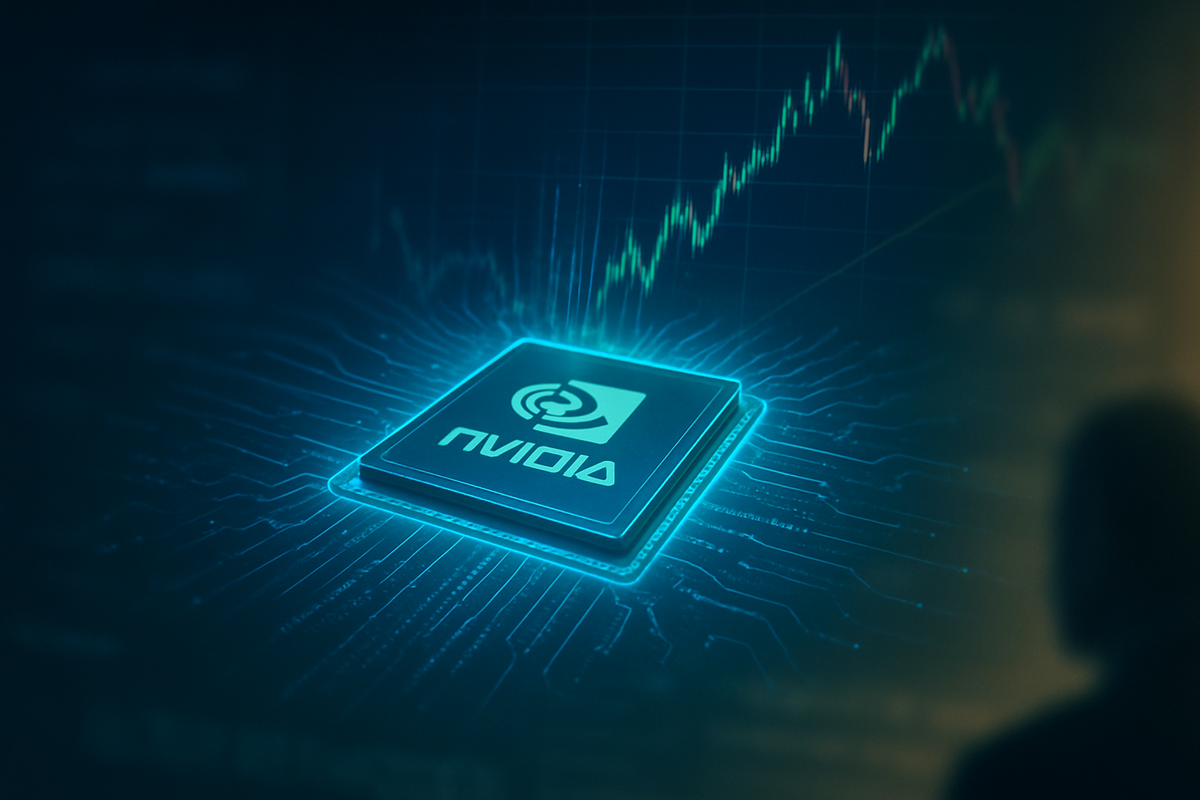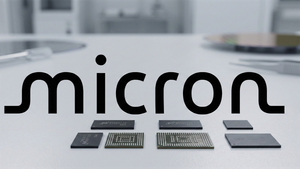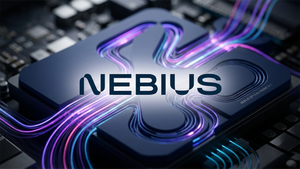
As the clock ticks towards market close on Wednesday, November 19, 2025, all eyes in the financial world are fixated on Nvidia's (NASDAQ: NVDA) fiscal third-quarter earnings report. This isn't just another quarterly update; it's a high-stakes event poised to either inject much-needed confidence into a faltering stock market or deepen the ongoing slide, which has seen major indices tumble and investor sentiment sour. The report is widely seen as a critical barometer for the health and sustainability of the artificial intelligence (AI) boom, a narrative that has largely driven market gains over the past year.
The stakes are exceptionally high. The broader market has experienced a notable pullback in November, with the S&P 500 dipping below its 50-day moving average for the first time in months. This weakness is attributed to a cocktail of concerns: stretched AI valuations, fears of an "AI bubble," and diminishing hopes for imminent interest rate cuts by the Federal Reserve. Given Nvidia's colossal market capitalization and its pivotal role as the infrastructure backbone of the AI revolution, its performance today could serve as a powerful catalyst, sending ripple effects across the entire technology sector and beyond.
The AI Bellwether's Critical Q3 Unveiling
Nvidia is scheduled to release its fiscal third-quarter earnings report after the market closes today, November 19, 2025. This highly anticipated announcement follows a period of unprecedented growth for the chipmaker, fueled by insatiable demand for its graphics processing units (GPUs) essential for AI training and inference. The timeline leading up to this moment has been characterized by escalating expectations, with Nvidia's stock price soaring to new heights throughout 2024 and early 2025.
Analysts are projecting robust figures for Q3 FY26, with consensus revenue estimates hovering around $54.8 billion to $54.9 billion, representing a staggering year-over-year increase of approximately 56%. Earnings per share (EPS) are similarly expected to surge by about 54% to between $1.25 and $1.26. However, these optimistic forecasts surpass Nvidia's own guidance of $54 billion (±2%), setting a high bar. To trigger a positive stock reaction, many believe Nvidia needs to report revenue of at least $55 billion, with some aiming for closer to $56 billion, coupled with a strong "beat and raise" scenario—surpassing current quarter expectations and providing robust guidance for the fourth quarter, ideally above the $62 billion forecast.
Key players involved include CEO Jensen Huang, whose previous statements about a substantial $500 billion order backlog for Blackwell and Rubin infrastructure extending through 2025-2026 have significantly amplified expectations. Investors will be scrutinizing the data center segment's revenue growth, clarity on future demand, performance in China sales, profit margins (especially the 74% margin in Data Center), and the stability of the supply chain. The successful and timely deployment of the new Blackwell (B200) chip is also a critical factor. Initial market reactions, even before the official release, show a surge in the Cboe Volatility Index (VIX), reflecting heightened anxiety. Options traders are pricing in a potential 7% swing in Nvidia's stock in either direction, which could translate to a record-breaking $320 billion change in market capitalization.
Winners and Losers: The Ripple Effect of Nvidia's Report
Nvidia's earnings report will undoubtedly send shockwaves through various segments of the market, creating both winners and losers depending on the outcome. A stellar report, exceeding the already elevated expectations, would likely provide a significant boost not only to Nvidia (NASDAQ: NVDA) itself but also to a host of companies within the AI ecosystem.
Potential Winners:
- AI Infrastructure & Cloud Providers: Companies like Microsoft (NASDAQ: MSFT), Amazon (NASDAQ: AMZN) with AWS, and Alphabet (NASDAQ: GOOGL) with Google Cloud, which are heavily investing in AI infrastructure and rely on Nvidia's GPUs, would likely see renewed investor confidence. Strong Nvidia results would validate their massive capital expenditures in AI.
- Semiconductor Peers: Other chipmakers involved in the AI supply chain or those with strong AI plays, such as Advanced Micro Devices (NASDAQ: AMD), Marvell Technology (NASDAQ: MRVL), and Broadcom (NASDAQ: AVGO), could experience a positive halo effect. A robust demand signal from Nvidia implies a strong underlying market for high-performance computing components.
- AI Software & Services Companies: Firms developing AI applications, platforms, and services, ranging from enterprise AI solutions to specialized AI startups, would benefit from the validation of the AI market's growth trajectory. Increased confidence in the hardware foundation translates directly to a more fertile ground for software innovation.
- Memory Manufacturers: Companies like Micron Technology (NASDAQ: MU) and Samsung (KRX: 005930), which supply high-bandwidth memory (HBM) crucial for Nvidia's advanced GPUs, would see their prospects brightened by continued strong demand for Nvidia's products.
Potential Losers:
- Overvalued Tech Stocks: If Nvidia's report disappoints, particularly if it hints at a slowdown in AI spending or margin compression, it could trigger a broad sell-off in other technology stocks perceived as overvalued or heavily reliant on the AI narrative. This could exacerbate the current market slide, especially for companies with less tangible AI revenue.
- Companies with AI Hype but No Substance: Firms that have seen their valuations inflate primarily due to loose associations with "AI" without concrete products or significant revenue streams could face a harsh reality check. Investor scrutiny on actual AI profitability and demand would intensify.
- Competitors Failing to Keep Pace: While AMD is a direct competitor, a weak Nvidia report could depress the entire sector. However, if Nvidia underperforms relative to expectations, it could potentially open a window for competitors to gain ground, though this scenario is less likely to be an immediate "win" for them given market sentiment.
In essence, Nvidia's earnings are a litmus test for the entire AI economy. A positive outcome would reinforce the investment thesis for AI-driven growth, while a negative one could trigger a broader re-evaluation of valuations and future prospects across the tech landscape.
Wider Significance: A Litmus Test for the AI Era
Nvidia's earnings report extends far beyond the confines of a single company's financials; it serves as a critical barometer for the entire artificial intelligence industry and its broader impact on the global economy. This event fits squarely into the overarching trend of digitalization and the increasing reliance on advanced computing for everything from scientific research to enterprise operations. The continued robust growth in Nvidia's data center segment would further solidify the narrative that AI is not a fleeting trend but a foundational technological shift, driving unprecedented demand for specialized hardware.
The potential ripple effects are vast. For competitors like Advanced Micro Devices (NASDAQ: AMD) and Intel (NASDAQ: INTC), Nvidia's performance offers insights into the competitive landscape and the pace of innovation required to keep up. A strong report from Nvidia might spur these companies to accelerate their own AI chip development and market penetration strategies, while a weaker report could signal broader market saturation or pricing pressures, affecting their strategic planning. Partners in the cloud computing space, such as Amazon (NASDAQ: AMZN) with AWS, Microsoft (NASDAQ: MSFT) with Azure, and Alphabet (NASDAQ: GOOGL) with Google Cloud, are deeply intertwined with Nvidia's success, as they are major consumers of its GPUs to power their AI services. Their investment plans and future growth trajectories are closely linked to Nvidia's ability to supply cutting-edge hardware efficiently.
Regulatory and policy implications could also emerge. Sustained, exponential growth in the AI sector, as evidenced by Nvidia's performance, might invite increased scrutiny from antitrust regulators globally, concerned about market concentration and potential monopolies in critical AI infrastructure. Discussions around export controls, particularly concerning advanced chips to certain regions like China, will also remain pertinent, as highlighted by Nvidia's ongoing efforts to navigate these geopolitical complexities. Historically, periods of rapid technological advancement, such as the dot-com boom, have seen similar investor euphoria and subsequent corrections. While the underlying technology and market fundamentals for AI are arguably stronger, the "priced for perfection" sentiment around Nvidia draws comparisons to market leaders during past speculative bubbles, prompting caution among seasoned investors. The sheer scale of Nvidia's order backlog and its dominant market share in AI accelerators make this earnings call a unique event in modern financial history.
What Comes Next: Navigating the Post-Earnings Landscape
The immediate aftermath of Nvidia's earnings report will undoubtedly dictate the short-term trajectory of its stock and, by extension, a significant portion of the technology market. In the short term, a "beat and raise" scenario—where Nvidia surpasses current expectations and provides robust future guidance—would likely trigger a sharp rally in its stock, potentially helping to stabilize or even reverse the broader market slide. This would inject renewed confidence in the AI narrative, encouraging further investment in related companies. Conversely, any disappointment, whether in current results or future outlook, could lead to a significant sell-off in Nvidia's shares, potentially exacerbating the ongoing market downturn and fueling fears of an "AI bubble" burst.
In the long term, the report will influence strategic pivots and adaptations across the industry. If demand for AI hardware remains exceptionally strong, other semiconductor companies and cloud providers will likely double down on their AI investments, potentially leading to increased competition and innovation. Nvidia itself will need to continue innovating rapidly, managing its supply chain effectively, and navigating geopolitical challenges, particularly regarding its sales in key markets like China. Potential strategic pivots could include further diversification into software platforms and services to capture more value from its hardware ecosystem.
Market opportunities or challenges that may emerge depend heavily on the earnings outcome. A strong report could unlock further capital for AI startups and research, fostering more innovation. A weaker report might lead to a more cautious investment environment, favoring established players with proven profitability over speculative ventures. Potential scenarios range from a continued, albeit more measured, AI-driven bull market to a significant correction in tech valuations if the growth narrative falters. Investors will be closely watching for signs of sustainable demand beyond the initial AI infrastructure build-out, including the adoption rates of AI in enterprise applications and consumer products.
Comprehensive Wrap-Up: A Defining Moment for AI and the Market
Nvidia's (NASDAQ: NVDA) fiscal third-quarter earnings report on November 19, 2025, represents a defining moment for both the company and the broader financial markets. The key takeaway from this event will be whether the AI growth story, which has propelled markets for the past year, can withstand intense scrutiny and continue its impressive trajectory. The market is "priced for perfection," demanding not just a beat, but a significant "beat and raise" scenario from Nvidia to justify current valuations and alleviate concerns about an AI bubble.
Moving forward, the market's assessment will hinge on several factors: the actual revenue and EPS figures, the guidance provided for the fourth quarter, and crucially, the commentary from management regarding demand trends, supply chain stability, and the performance of key segments like data centers. If Nvidia delivers, it could act as a powerful catalyst, potentially stemming the recent market slide and restoring investor confidence in the AI sector's long-term potential. This would likely benefit a wide array of companies in the AI ecosystem, from cloud providers to memory manufacturers.
However, a miss or even a cautious outlook could trigger a sharp downturn, not only for Nvidia but also for other tech giants and AI-related stocks, potentially intensifying the current market pullback. Investors should watch for signs of sustained demand, particularly in the enterprise adoption of AI, and any shifts in competitive dynamics. The lasting impact of this earnings call will be a re-evaluation of risk versus reward in the AI space, shaping investment strategies for months to come. The outcome will either solidify Nvidia's position as the undisputed king of AI infrastructure or signal a potential recalibration of market expectations for the entire industry.
This content is intended for informational purposes only and is not financial advice





